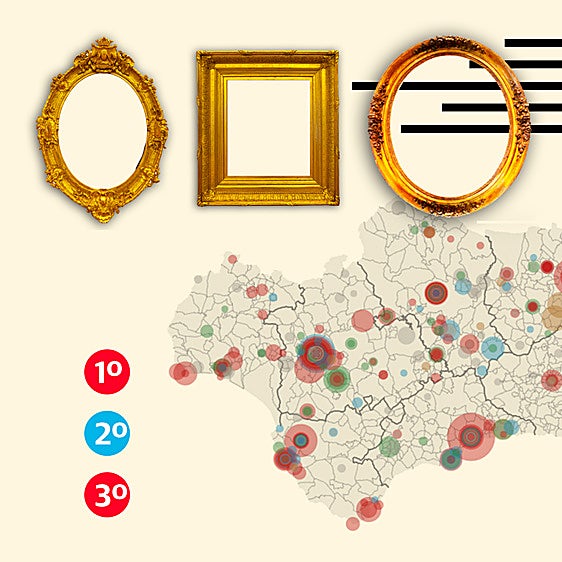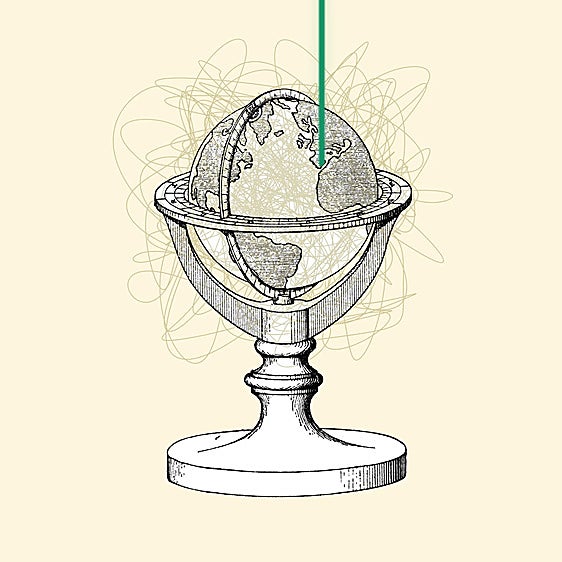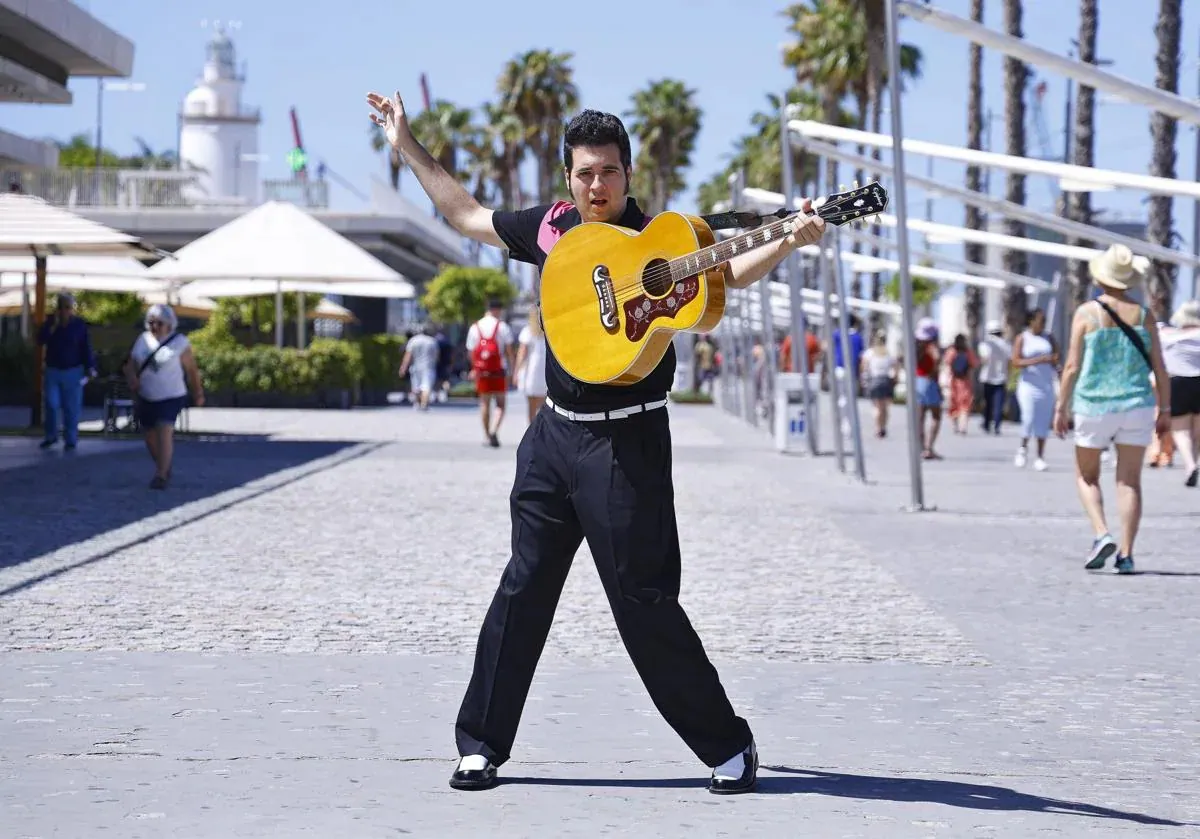It's 47 years since the 'King of Rock and Roll' died, but his legacy is kept alive on the Costa de Sol
Thousands of holidaymakers will see Elvis perform on the coast this summer thanks to three of the best tribute artists in Malaga province who have spoken exclusively to SUR on the anniversary of the singer's death, at the age of just 42
Carlos Zamarriego
Costa del Sol
Friday, 16 August 2024, 14:21
Elvis Presley never travelled to the Costa del Sol. Not even on holiday. In fact, surprisingly enough, he only performed two concerts outside the United States, both in Canada. When the singer died on 16 August 1977 at Graceland, his mansion in Memphis, aged 42, he left thousands of sad fans all over the world who were never able to see him live.
Maybe that explains why, since his death, there has been a real obsession with depicting Elvis on stage, reviving his sideburns, his kitsch costumes, his hip swaying and his voice. The international association Elvis Tribute Artists (ETAs) estimates that there are around two thousand professional and semi-professional Elvis tribute artists around the world. They are the so-called 'covers', a phenomenon that includes other legends, such as Frank Sinatra or Amy Winehouse, and which extends to any area of Spain where there are foreigners. But even so, Elvis fans are made of different stuff. So much so that there is even an annual contest in Memphis, the Ultimate Elvis Tribute Artist Contest, to choose the best in the world.
His figure has leapt into the popular imagination thanks to the big screen. There's Nicholas Cage singing Love Me Tender in Wild at Heart. There is also Kurt Russell and Kevin Costner in Kings of Crime, dressed up as Elvis at a Las Vegas impersonators' convention; or Harvey Keitel in Finding Graceland, playing a fan who ends up believing he's the real Elvis.
For many, it's not just music; it's a way of understanding life.
Waiting for Stelvis
It's a Monday evening in June and the promenade of La Carihuela is buzzing with tourists looking for a place to dine. In the colourful and bustling Calle del Bulto, languages intertwine with the sound of the sea. In El Mojito bar, a classic among the British, they are showing a football match on their two screens, but with no sound. Because there, the star is not the ball. We are waiting for Steve Haughay. A waitress warns us: "He's always late." Indeed, he appears only fifteen minutes before the performance, hidden under a cap and huge glasses. He has no time for questions now. Nor for a photo. He has to set up, do a sound check and get changed.
It is ten minutes past nine in the evening. The pub is packed to the rafters, even though it is hot and the kitchen closed half an hour ago. Shirts with pelicans on them, round bellies and blonde manes. Among all the pensioners, the odd child enjoying a coke. The same intro that Elvis used to take the stage at the International Hotel in Las Vegas is playing. The audience falls silent. Steve comes out of an adjoining room, but it's no longer Steve, it's Stelvis, wearing the White Cossack, the famous white jumpsuit with studs, fringes, stand-up collar and red belt. Wig well adjusted and microphone in hand, the songs follow one after the other. Treat Me Nice brings the audience to their feet to dance. From time to time, he comes down from the stage and greets the audience, without stopping singing. He makes jokes, moves his pelvis without taking any risks, doesn't forget any of the classics, and the audience enjoy themselves to the full.
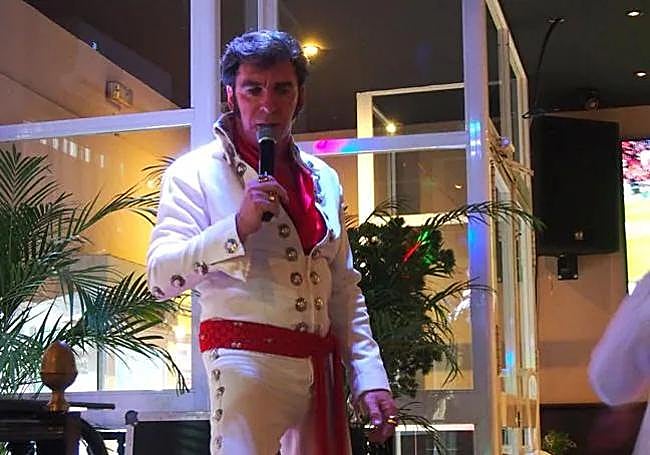
Zoom

A native of Liverpool, Steve, 58, does four shows a week in restaurants and pubs in Torremolinos, Benalmádena, Fuengirola and Marbella.
"At first I was doing seven to ten a week, but I got cancer, and the lockdown came, and I realised I didn't need to do so many," he says.
In 2004, he left his job as a floor and wall tiler in Chester, northwest England, to try his luck first in France, and finally on the Costa del Sol. Little did he know that in Malaga, fate had a totally different job in store for him.
"Someone heard me on a karaoke machine and offered me to sing at the local golf club. Now it's my only job," Steve explains.
Fourteen years have passed since then, dedicated to paying homage to the King of Rock. "I've always loved Elvis, I think he's the best singer of this genre. There has never been anyone like him. He died forty-seven years ago and he is at least as popular now as he was when he was alive."
It's not a gratuitous statement: Elvis has more than 23 million monthly listeners on Spotify.
"I'm not an impersonator," he says several times. "I'm an Elvis tribute artist. I don't find it difficult at all, I'm not imitating, it's me even though I'm wearing the suit. My voice is natural; I'm not trying to sound like Elvis, although my voice is similar," he explains.
Steve says he has been invited to sing in Denmark, Germany, France and Ireland.
"Once, seven members of a Danish rugby team arrived at Malaga airport wearing Stelvis shirts," he says. He is especially proud that some tourists "check that I'm performing in the area before they book their flight", and that his show is an outstanding holiday memory. "I'm very grateful to be able to make a decent living doing what I love," he says.
Kenny Dee's last dance
In Torremolinos there is even an Elvis who has hung up his wig. Sitting in the Vanilla Café in Plaza de la Nogalera, Kenny Duncan, who used the artistic name of Kenny Dee, feels at home. The conversation is interrupted several times so that he can return the greetings of the British residents who recognise him. Torremolinos was his first home in Spain when he moved to Malaga eight years ago, although he has now opted for the tranquillity of Mijas. The 63-year-old Londoner's life (he was 16 when Elvis died) has been anything but quiet. With a smiling face, blue eyes and long whitish sideburns, he already had a well-established career in his home country. He performed at the Hilton Hotel, appeared on TV shows, and even featured in a music video by Ronan Keating (former lead singer of the pop group Boyzone). He proudly displays a photo with Kevin Spacey, whom he had one night as an audience member. Apparently, the Oscar-winning actor was so pleased with his performance that he gave him a generous tip.
His story begins in 1997. "A friend of mine was the manager of a bar in Fulham and he had an Elvis tribute artist singing. He heard me on karaoke and told me I was much better than the person he was paying. I wasn't interested at first. I was a supervisor at a Blockbuster video store. He said, 'If you do it, I'll get you your first gigs.' I thought about it for three or four months," he explains.
In the end he decided on rock and roll, and he made the right decision: that year the video store franchise controlled 25 per cent of the world's business and today there is only one shop left in the world. Elvis proved better at surviving piracy and streaming.
"In one week he could have three or four shows in different parts of England. And a lot of weddings; in one summer I had up to 25."
However, he acknowledges that the demand on the Costa del Sol is higher, at least five gigs a week. His first "made in England" suit cost him 500 pounds, and now he boasts nine suits, in different colours, made in the United States by B&K Enterprises, with the same pattern as the original Elvis suits. Some, he says, cost as much as 14,000 dollars.
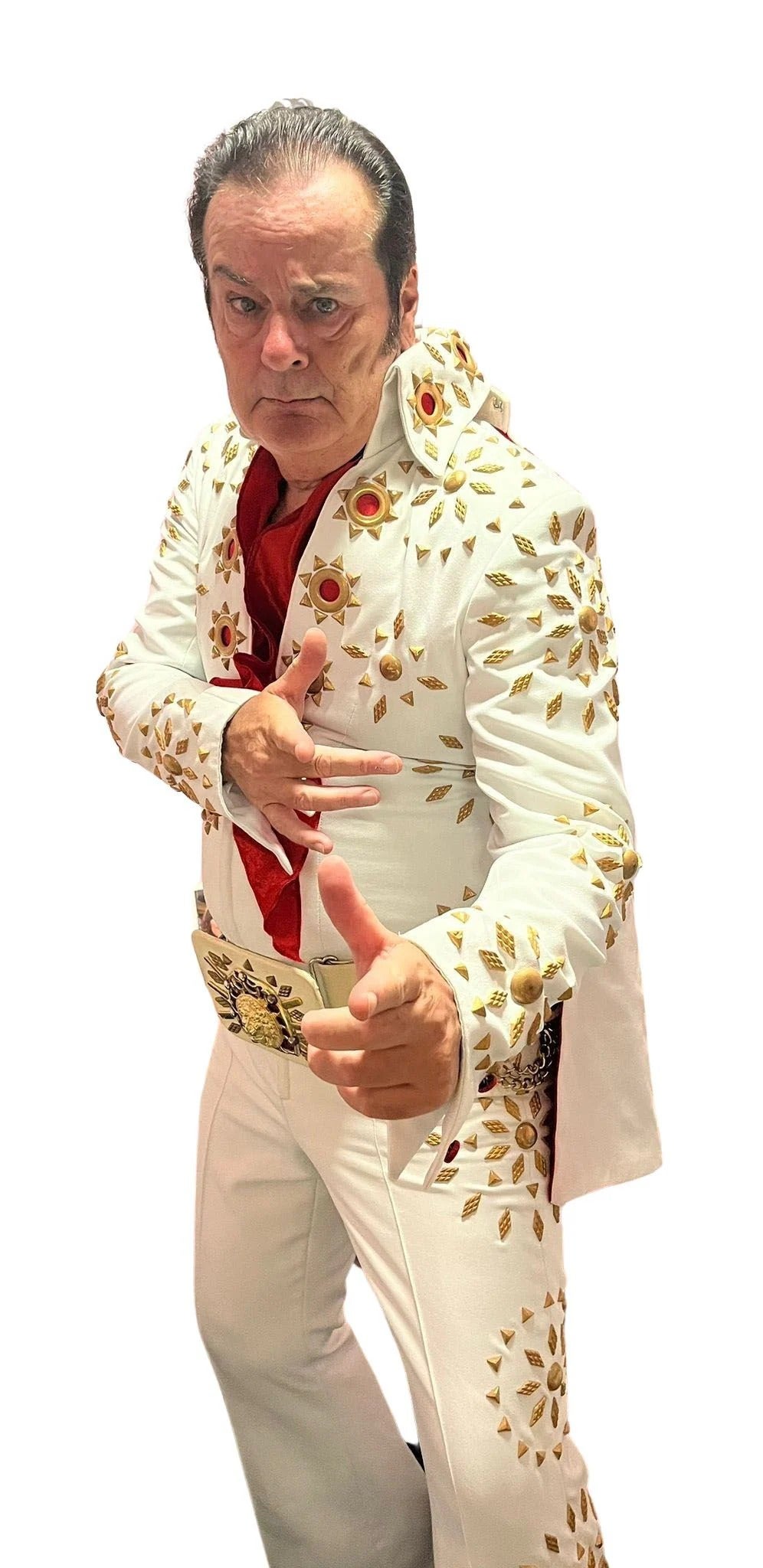
Zoom

Kenny also rejects the word impersonator: "I prefer the word tribute, because I don't think I'm Elvis Presley, I don't talk like him," although he admits to having worked a lot on his gestures. Is there something therapeutic about it? "When I'm on stage I transform, I'm not Kenny any more. The costume, the glasses, the hairstyle. I feel good," he says.
"Oh, let our love survive," go the lyrics of Suspicious Minds, one of the songs Kenny most enjoyed singing, although it all ended in 2019. The pandemic and the subsequent lockdown ended 23 years of career. His body just wasn't up to it any more. But last year he came back for one last dance. At Kenny's side, his partner Susan Elmond doesn't miss a word. They have been together for 14 years and have been to Graceland four times. On her right shoulder she has a red ribbon and the word 'survivor' tattooed. Just over a year ago, Susan rang the bell at the Hospital Clínico in Malaga to celebrate the end of cancer treatment. And it is not the first cancer she has overcome. Kenny decided to celebrate by doing what he does best, in Darcies Motown Bar in Benalmádena, in aid of Cudeca. "It was nice. I might go back to being Elvis in the future just to help another charity," he says.
A shrine to Elvis
After the interview, we accompanied Kenny and Susan to one of their favourite pubs. Cervecería Twister, tucked away in Plaza de la Independencia between pizzerias and steak houses, is a great refuge for lovers of rockabilly culture. Inside, photos, flags and portraits of Elvis adorn the walls. In one snapshot, taken in 1953, he appears at the piano with Carl Perkins, Jerry Lee Lewis and Johnny Cash.
"Many of his songs were written by Perkins, who played a phenomenal guitar, but he was uglier than Elvis," says Ana, the owner of this little shrine.
Ana passionately runs a venue that offers live rock and roll by Spanish and foreign bands, and where she periodically hosts weddings presided over by Elvis himself, in this case, in the body and soul of José Gil, a local from Torremolinos well known in the area for his dizzying wig and the huge tattoo of his idol's face on his arm.
Ana explains why there is such a demand for tribute concerts. "In other countries, all the people over 60 have lived with this music in their youth, and with a lot of different performers. And when they come here, they are looking for the same thing. For them it's nothing unusual, it's their music."
Elvis is from Malaga
"There is always the typical old lady who wants me to give her a kiss, like Elvis did in his time." This anecdote is told by Ángel David Castillo, or Blue Ángel, the only Elvis from Malaga who, in duo format with Jimmy on guitar, trio with a piano or double bass, or with a band of eleven musicians, competes on equal terms with the British artists.
"When I was 14 years old, I saw an advert on television with Elvis music. I liked it and I started to investigate, to buy records... I became a huge fan. My friends said to me, 'How do you listen to that? It's really old'," says this lifelong resident of La Barriguilla neighbourhood.
"Elvis was already dead and I didn't care. I started to research how they recorded at that time, and I read about him. I started to soak up his history. And for a question of vocal similarity, I started to sing songs like he did, to do a bit of a tribute," he adds.
Ángel usually starts his concerts with That's All Right (Mama) or Shake Rattle 'n' Roll. At 35, he boasts versatility to do both the younger Elvis, "more rock 'n' roll, more chaotic", and the mature, "more melodic". Which one does he get asked for most? "The showiest is the last Elvis, because they are more orchestrated songs and because of the costumes. Sometimes I perform both periods in the same show, and in the intermission, I change my clothes. But the song I always like and can't miss is Can't Help Falling in Love."
His first concert, in 2018, was at the Classic Rock pub. "I saw that tributes were very fashionable, and there was no one in Malaga doing Elvis, because they usually sing in Torremolinos or Marbella. I thought it was original. I wanted to introduce the public to music they weren't used to," he says.
Now, Ángel performs an average of 15 concerts a month around Malaga and the Costa del Sol, earning "on average" between 70 and 100 euros per musician. "Thanks to Elvis I have the opportunity to always be in front of an audience, make music and sing, which is what I like."
His next challenge will be to take part in September at the festival in the Welsh town of Porthcawl, the biggest Elvis event in Europe. "My ambition is to learn from people who have been around longer. I want to prove myself. As Elvis would say, It's now or never," he concludes.

